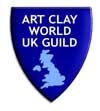Code of Practice for MCSJ Tutors and
Diploma Support Centres
This Code aims to lay out some fundamental aspects of running a good class. It is a Code of Practice designed to improve teaching standards and applies to all tutors teaching at our School and our Diploma Support Centres. We are not interested in prescribing what people teach; instead we aim to provide an umbrella set of goals that all teachers would want to aspire to. If you have any problems with one of our tutors or one of our Diploma Support Centres, we have a Code of Practice Assurance Process.
All our Diploma Support Centres have agreed to…
- Clearly outline the cost of their classes including what materials or resources are included in the price. They will make it clear if students need to buy more materials or tools to complete the projects. No hidden costs or misleading prices will underlie their advertising, marketing or website descriptions.
- Be clear about their cancellation policy.
- Make sure the class venue and other arrangements are properly organised to enhance student learning.
- Always consider the safety of their students and address the health and safety aspects of working with metal clay.
- Have adequate, current professional liability insurance.
- Make sure students get clear joining instructions or class specific information in good time before their class.
- Plan their lessons and prepare well.
- Be punctual with start and finish times, returning from breaks etc to ensure students get value for money.
- Ask if they want to use someone else’s technique or work in their classes.
- Steadfastly avoid plagiarism, taking care to secure prior usage permission from any person whose work, materials or imagery they propose to feature in their teaching materials or presentation, and to prominently attribute original sources.
- Provide enough relevant tools and equipment for students to use without having an unreasonable waiting time.
- Only book the number of students on a class that they can comfortably and safely accommodate in their training facility.
- Provide clear information about the class content (including the number and complexity of projects.) Provide written notes to back up their teaching. (Including sources of further information, suppliers and support organisations such as Guilds.)
- Show students samples of what they’re expected to make. This is especially important for Certification or Diploma classes where the finish of the piece is part of the criteria for passing.
- Help students attending Certification or Diploma training to pass. This includes demonstrating techniques and using other good teaching methods to meet the diverse learning styles of students. Give students options if they don’t achieve the required standard while the course is running.
- Ask students to complete a feedback form either written or electronic. Act on it appropriately.
- Keep informed about new developments in metal clay.
- Treat their students with respect at all times.













.gif)

